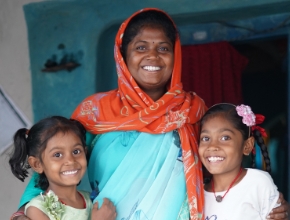Over 85% of a child’s cumulative brain development occurs prior to the age of 6 years. Providing appropriate care and nurturing to children in their early and formative years is therefore critical for ensuring optimal growth and development. India’s New Education Policy (NEP 2020) underscores this crucial importance of Early Childhood Care and Education (ECCE) and Foundational Literacy and Numeracy (FLN). In this evolving landscape, Pratham continues to invest heavily in expanding and exploring how to impact children’s holistic development and foundational abilities during these early years. Pratham believes that building strong foundational abilities in children during their early years will make them effective learners and eliminate the need for remedial interventions in the later years.
Pratham’s work with Early Childhood Education began in 1995 with balwadis in Mumbai, run by community-based volunteers. Since then, our early years interventions, focusing on holistic development and learning of children of 0-8 years, have evolved considerably through years of experimentation with different content, material, and delivery models. These programs use play-based pedagogy, local resources, low-cost and appropriate material, and involve caregivers, especially mothers.
In 2022-2023, Pratham reached over 56 lakh children through government partnerships and nearly 5.74 lakh children directly through education activities. Over 2.17 lakh mothers participated in Pratham-led mothers’ groups. Pratham’s Early Years programs are active in 18 states across India.
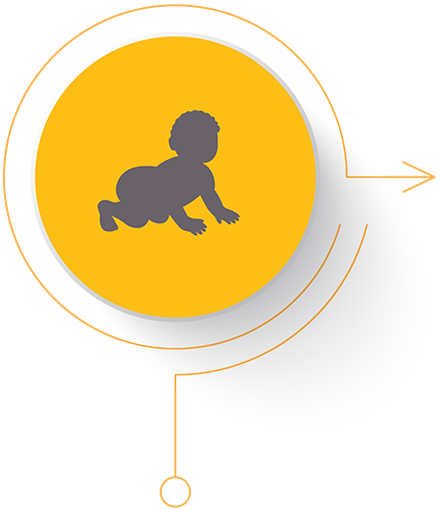
Birth
Ensure awareness of early development milestones among caregivers and provision of early stimulation for children aged 0-3 years.
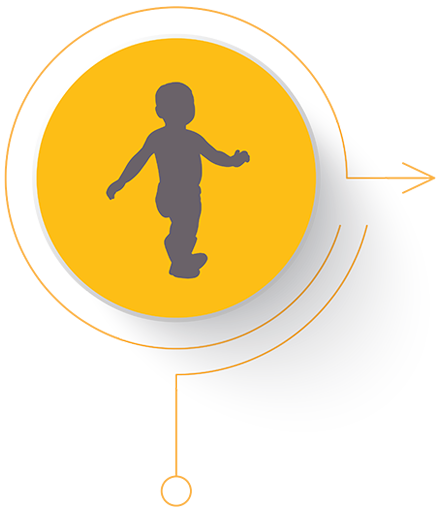
Entry to Pre-school
Important to ensure enrollment of children in their early years in Anganwadi or pre-school.
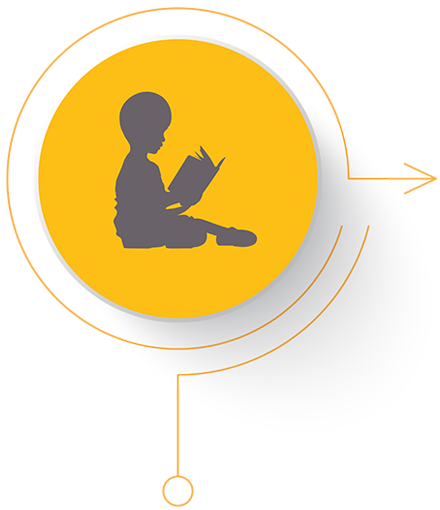
Entry to School
It is critical to push the age of entry into Grade 1 at 6 years and ensure that children spend enough years in pre-school in order to be ready for school.
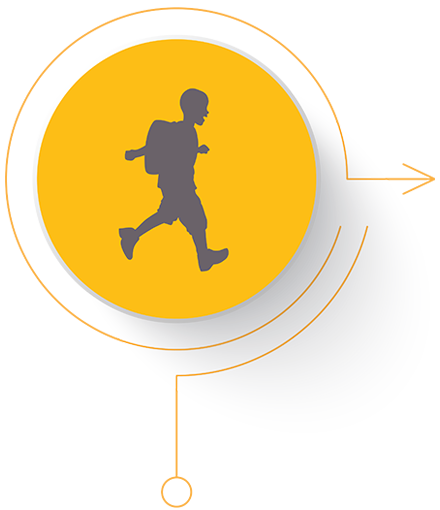
Ready to Learn
Ensure Foundational Literacy and Numeracy by Grade 3.
KEY FEATURES
IN ANGANWADI/SCHOOL: TEACHER-LED/VOLUNTEER-LED ACTIVITIES
In Pratham’s community-based Early Years programs, volunteers in the community are mobilised and trained to conduct daily activities with children inside the Anganwadi, thereby supporting and equipping the Anganwadi functionaries with effective early childhood care and education practices. These activities, called “Anganwadi Mei Dhoom”, further foster community involvement in children’s early childhood education.
In government partnership programs, typically with the state Education or Women and Child Development Departments, Pratham trains government Key Resource Persons (KRPs) on play- and activity-based pedagogy for ECCE and FLN, as relevant. These KRPs, in turn, train the respective frontline functionaries (ie, Anganwadi workers or school Grade 1-2 teachers) and subsequently mentor them through visits and demonstrations. Practice is an integral feature of our approach to equip government personnel. The KRPs conduct practice classes before they train others; further, as part of their visits to Anaganwadis or schools, they conduct activities themselves to demonstrate these to the frontline functionaries.
IN COMMUNITY: MOTHERS’ GROUPS AND WORKSHOPS
Pratham has formed thousands of mothers’ groups at the community-level. Mothers are encouraged to meet every week in their groups to discuss how they can be actively involved in their children’s learning and development process. Guided content pieces like Idea Cards and Idea Videos, focusing on development milestones and stimulation and learning activities, are shared with mothers' groups. Mothers view and discuss these during their weekly meetings and do the suggested activities with their children at home. Further, on a monthly or quarterly basis, mothers are invited to the school for a mothers’ workshop. This helps strengthen the connection between the teacher and the mothers.
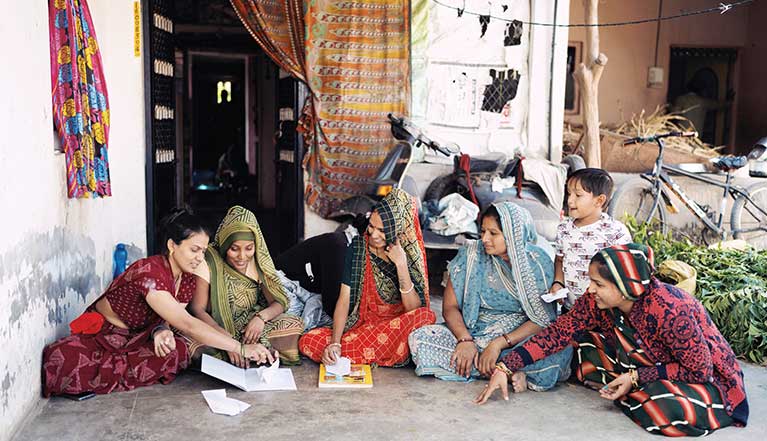
IN COMMUNITY: SCHOOL READINESS MELAS
Within the early childhood spectrum, one of Pratham’s major objectives is to ensure that children are “Ready for School”. A key activity undertaken by Pratham in this regard is a community event – the “School Readiness Mela” (also referenced in NIPUN Bharat guidelines of the Government of India, p.239). This event seeks to engage local community members at large, including children, mothers, families, Anganwadi workers, school teachers, and government officials. The purpose of the Mela is to understand children’s readiness for school through a variety of fun activities and engage mothers in their children’s learning journey. Mothers are given a report card which explains the level of their children across domains and are oriented on simple activities to do at home to build their children’s ability on the same skills. After a period of 1-2 months, a second round of Melas is done in which the children’s progress is recorded.
TEACHING-LEARNING MATERIALS
Inside the Anganwadi/school, Pratham believes that classrooms should be “print-rich" with a variety of story books, story cards, picture cards, and flash cards as well as “play-rich" with a variety of manipulatives, toys, and other play-based activities.
In community and home-based activities, Pratham advocates the use of locally available materials – things one can easily find at home. The objective is to make education accessible to all by eliminating the need for expensive or inaccessible materials.
HOLISTIC ASSESSMENTS
In Pratham-led programs, children are assessed on a variety of skills across all developmental domains: physical, language, cognitive, math, and social-emotional domains. For this purpose, Pratham has developed a set of assessment tools which are in line with the recommendations of NIPUN Bharat and NCERT. The tools have been developed keeping in mind that children learn at different paces; the tools are, therefore, progressive in nature. Each skill in the assessment tool is split into four stages and children’s progress is tracked over the course of an academic year in order to assess their growth.
DIGITAL CONTENT FOR CAREGIVERS AND TEACHERS
In 2015, Pratham started tablet- and mobile-based initiatives that experimented with community-based learning using digital learning games, WhatsApp and text messages and videos. Pratham has also created a repository of digital content in the form of videos, games, online instructional material for caregivers and teachers of 0 to 8-year-olds.
Pratham’s artificial intelligence and machine learning-based content creation and development of speech-to-text and text-to-speech began five years ago. Pratham now collaborates with leading commercial and academic groups to develop independent learning and assessment tools.
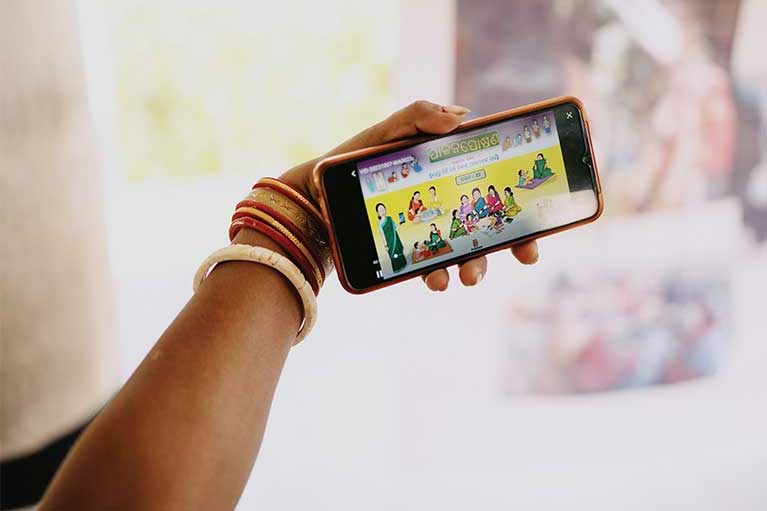
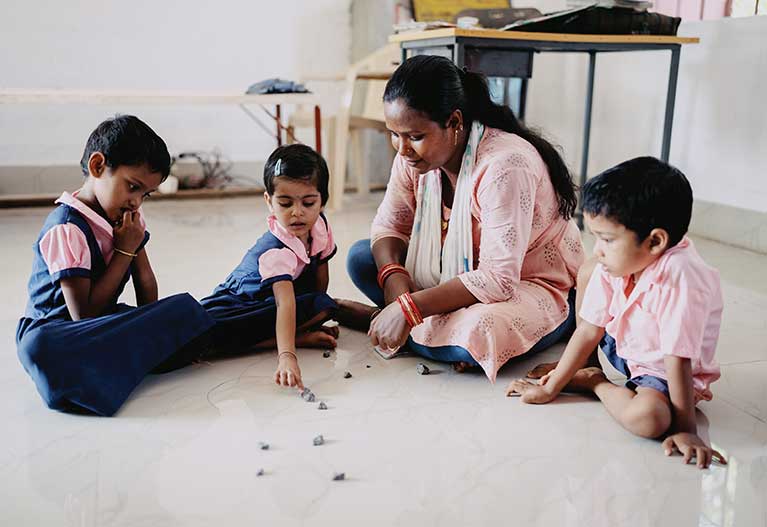
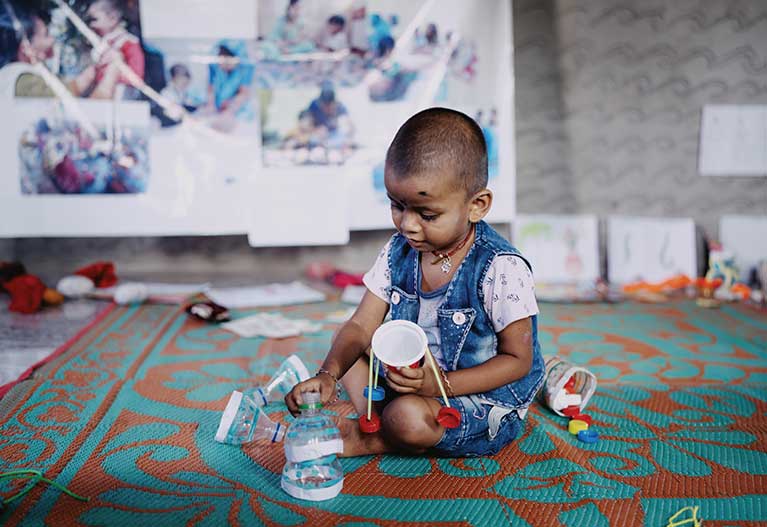
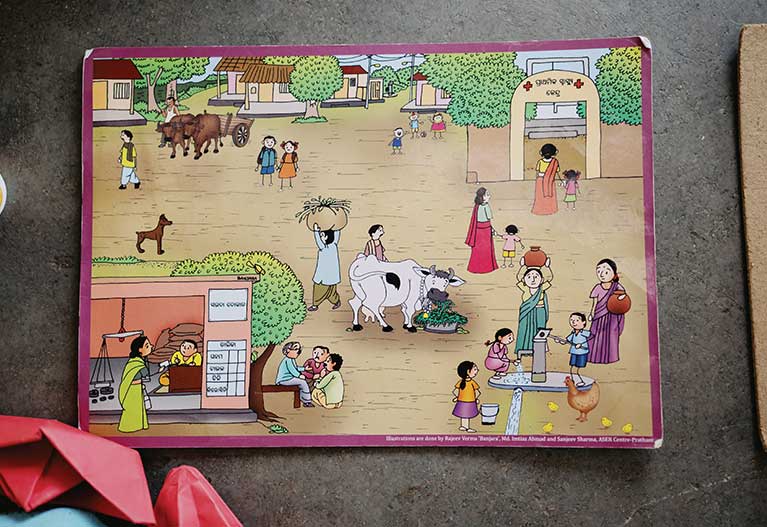
RESEARCH PROJECTS
Under the Early Years program, Pratham has undertaken a number of research projects to understand the scope, build evidence and plan interventions to scale impact. Learn more about these projects here.

